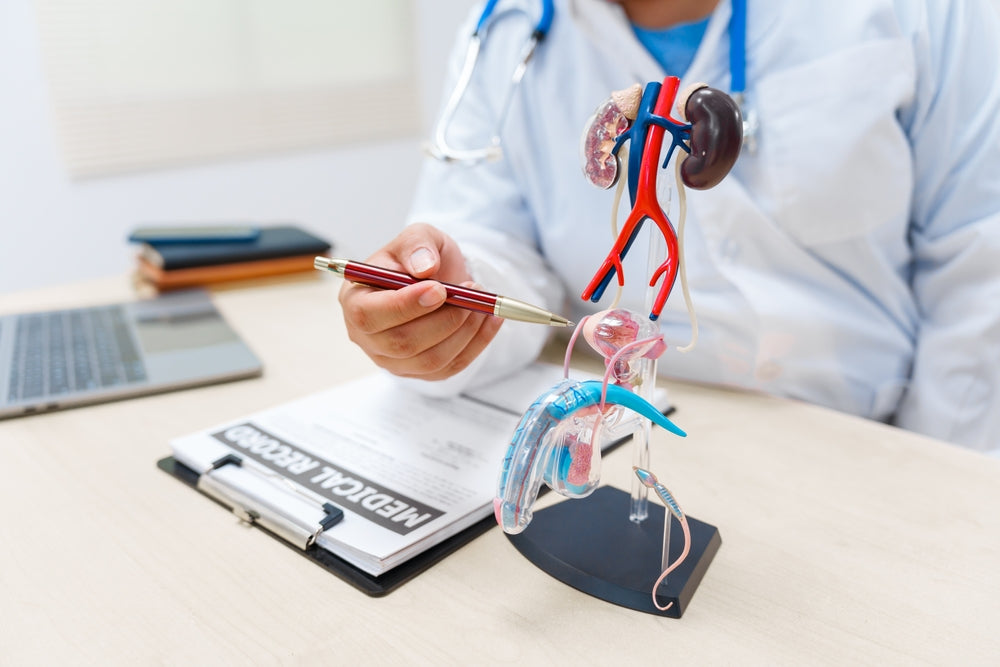
Understanding Urology: A Comprehensive Guide to Urinary Health
Share
Urology is a specialized branch of medicine that focuses on the diagnosis, treatment, and management of disorders related to the urinary tract and the male reproductive system. While often overlooked, urology plays a crucial role in maintaining overall health, as issues in the urinary system can significantly impact the quality of life. This blog will explore the field of urology, the common conditions it addresses, and the treatments available to ensure optimal urinary and reproductive health.
What Is Urology?
Urology encompasses a wide range of medical conditions affecting the kidneys, bladder, ureters, urethra, and in men, the reproductive organs such as the prostate, testes, and penis. Urologists are highly trained medical professionals who specialize in both medical and surgical approaches to treating these conditions. They work closely with other healthcare providers, including nephrologists, oncologists, and gynecologists, to provide comprehensive care for patients.
Common Urological Conditions
Urinary Tract Infections (UTIs)UTIs are one of the most common urological conditions, especially in women. They occur when bacteria enter the urinary tract, causing symptoms such as painful urination, frequent urges to urinate, and cloudy or bloody urine. While UTIs are often easily treated with antibiotics, recurrent infections may require further investigation to rule out underlying causes such as kidney stones or structural abnormalities.
Kidney Stones
Kidney stones are hard deposits of minerals and salts that form in the kidneys and can cause intense pain when passing through the urinary tract. They can vary in size, with smaller stones often passing on their own, while larger ones may require medical intervention. Urologists use various treatments, including extracorporeal shock wave lithotripsy (ESWL) and minimally invasive surgeries, to break up and remove stones.
Benign Prostatic Hyperplasia (BPH)
BPH is a common condition in older men where the prostate gland enlarges, leading to urinary symptoms such as frequent urination, weak stream, and difficulty emptying the bladder. While BPH is not cancerous, it can significantly affect quality of life. Treatment options range from lifestyle changes and medications to surgical procedures like transurethral resection of the prostate (TURP).
Prostate Cancer
Prostate cancer is one of the most common cancers in men. Early detection through screening tests like prostate-specific antigen (PSA) tests and digital rectal exams (DRE) is key to successful treatment. Urologists are instrumental in diagnosing, staging, and managing prostate cancer through a variety of treatment options, including surgery, radiation therapy, and hormone therapy.
Maintaining Urinary Health: Tips and Prevention
Preventive care is essential in maintaining good urological health. Here are a few tips to keep your urinary system functioning optimally:
- Stay Hydrated: Drinking plenty of water helps flush out toxins and reduces the risk of developing kidney stones and UTIs.
- Practice Good Hygiene: Maintaining cleanliness, particularly in the genital area, can prevent infections.
- Regular Screenings: For men, regular prostate exams after the age of 50 (or earlier for those at risk) can help detect prostate cancer early.
-
Healthy Diet: A balanced diet rich in fiber and low in salt can help prevent kidney stones and maintain urinary tract health.
Conclusion
Urology is a vital field that addresses many common and serious health issues affecting both men and women. From treating kidney stones and UTIs to managing prostate cancer and erectile dysfunction, urologists play an essential role in maintaining urinary and reproductive health. Early detection, preventive care, and access to advanced treatment options can make a significant difference in outcomes, ensuring that patients enjoy a better quality of life.
If you are experiencing any symptoms related to your urinary system or male reproductive health, consult with a urologist to explore the best course of action.
